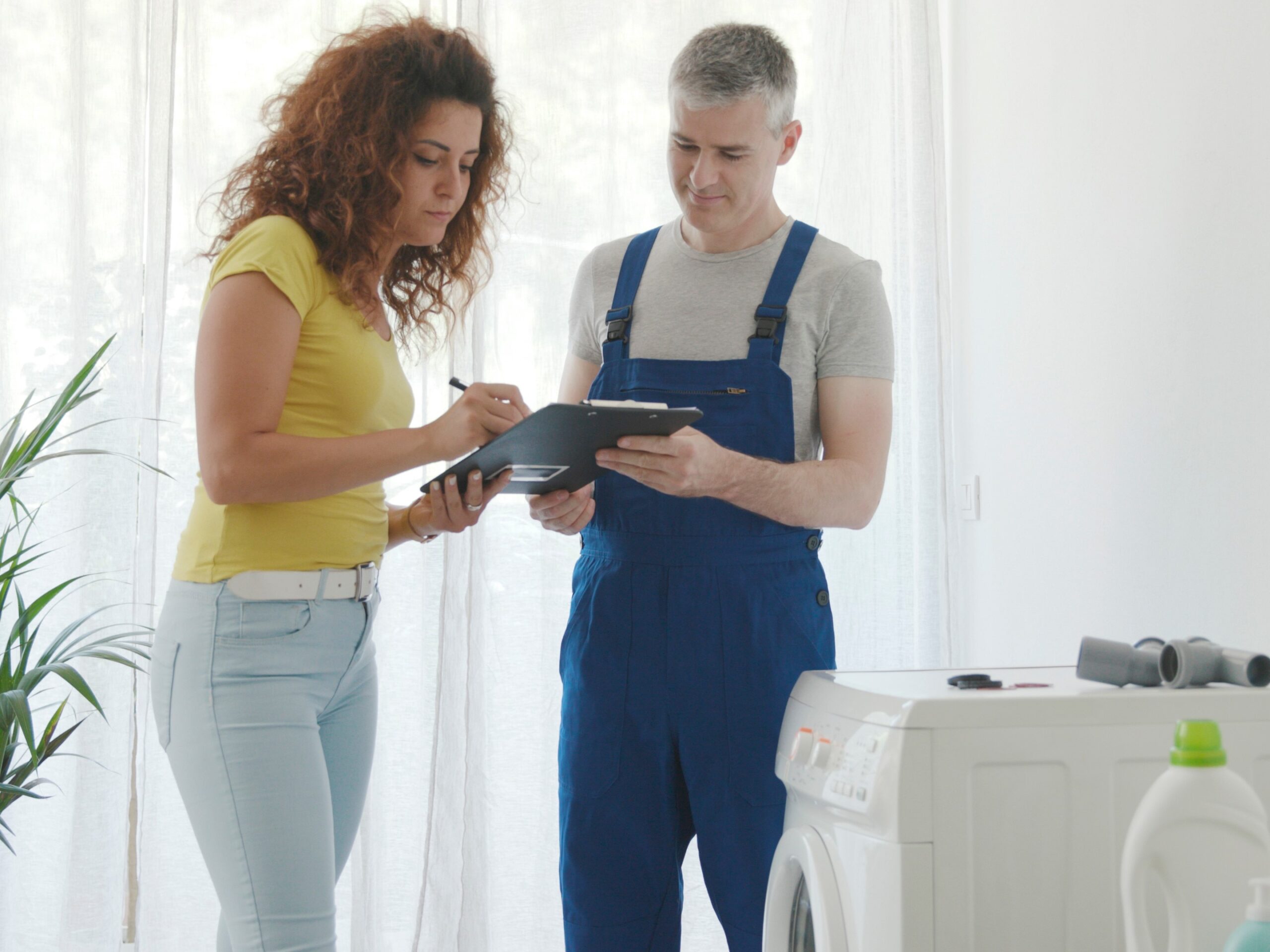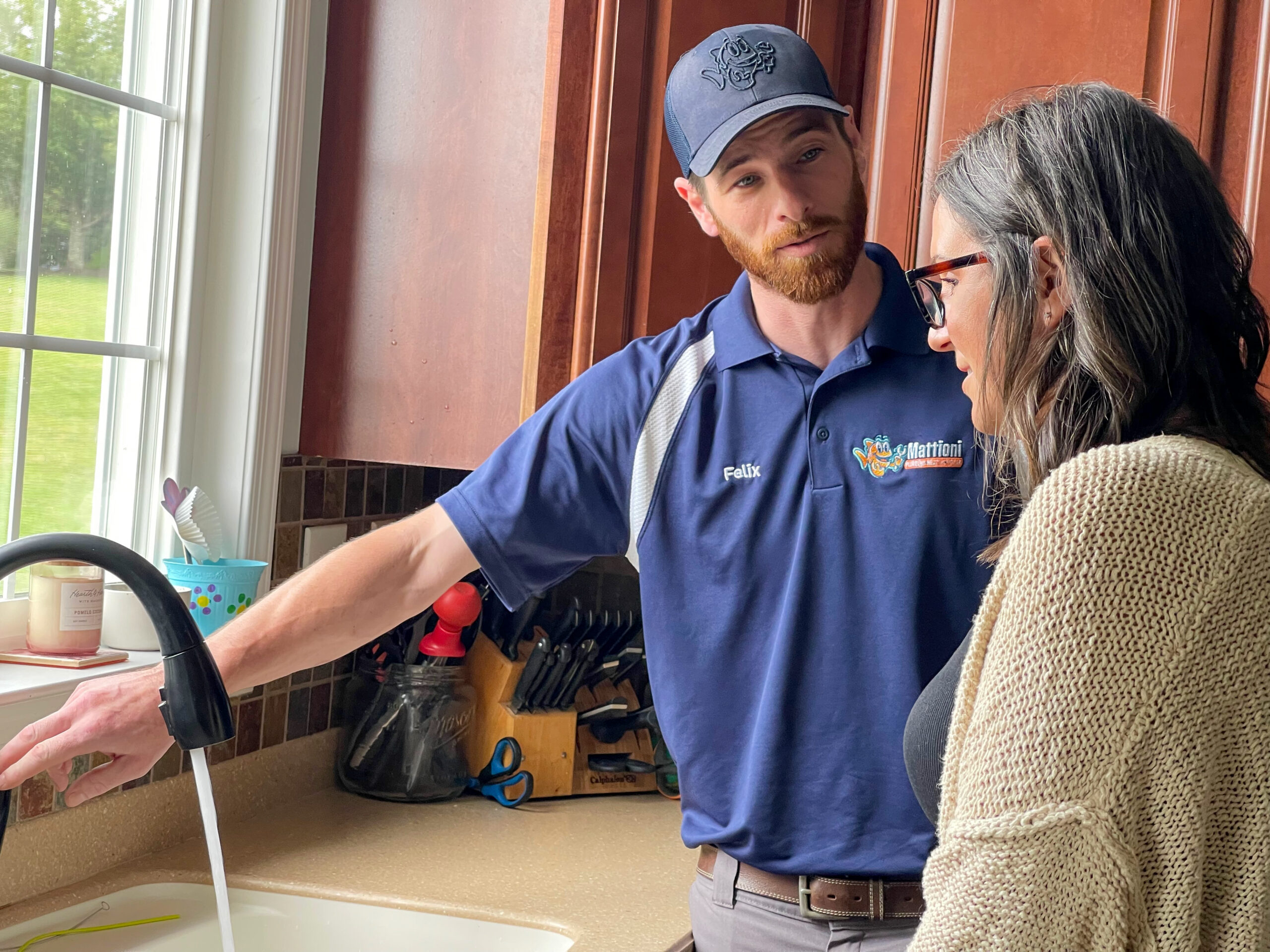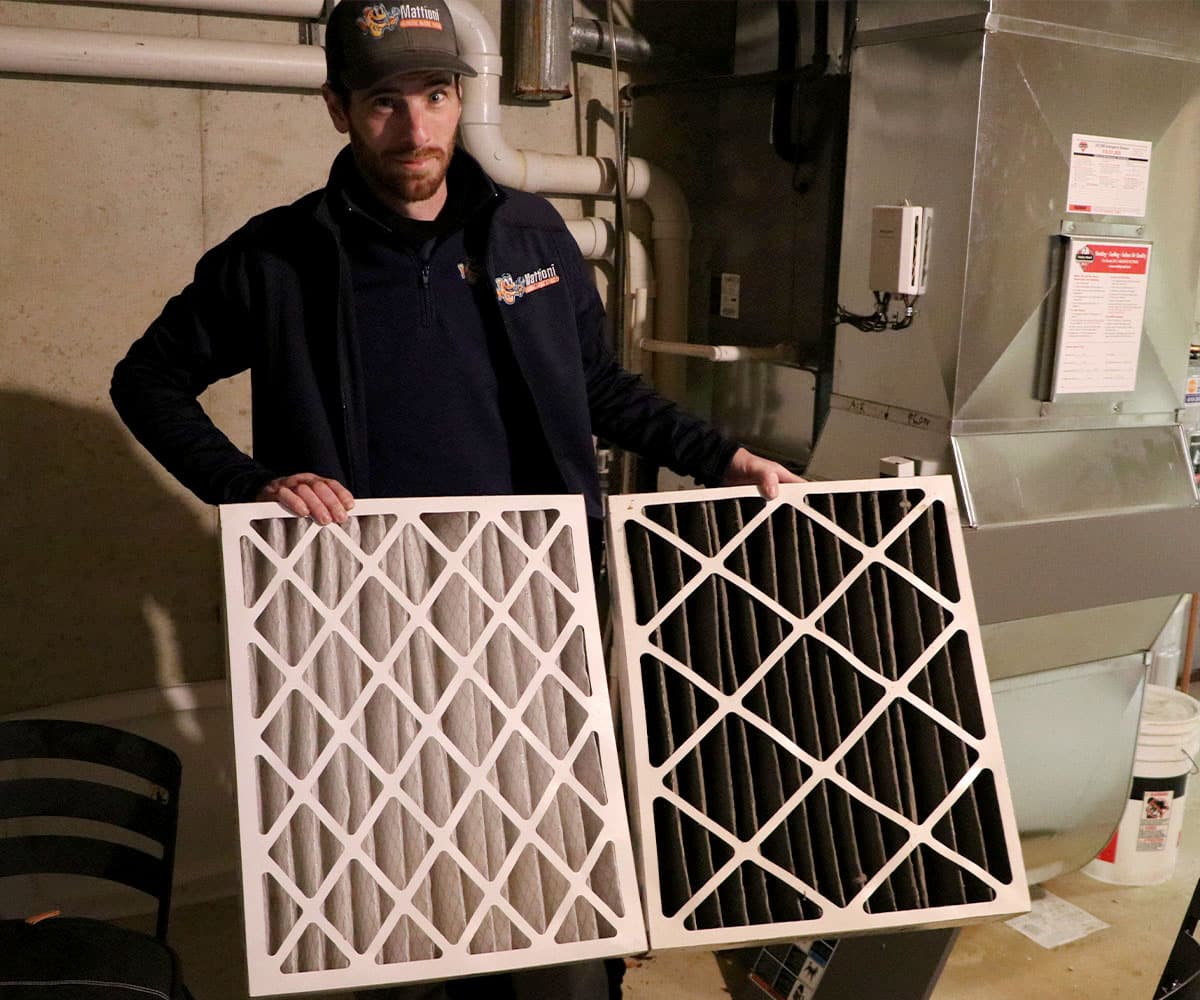|
Getting your Trinity Audio player ready...
|

After reading this article you’ll have everything you need to know about what leads to a leaking coil and how best to respond to one.
–
Is your AC unit struggling to keep your home cool during the hottest days of summer? If so, a leaking coil might be to blame.
A leaking coil might seem like a simple issue, but it can lead to severe system damage and leave your home uncomfortably warm if not addressed.
For decades, Mattioni’s HVAC professionals have expertly diagnosed and repaired leaking coils, ensuring homes stay comfortable even during peak summer heat.
In this article, we’ll explain the types and functions of AC coils, causes of leaks, symptoms to watch for, and how to diagnose and solve the problem effectively.
The Function and Types of Coils in AC Units
It’s crucial first to recognize the role of coils within your AC unit to understand the significance of an AC coil leak. Air conditioners rely on two main types of copper coils which serve as the temperature moderation points for the system: the evaporator coil and the condenser coil.
Evaporator coils are found in the air handler or furnace inside your home. This is the coil where refrigerant, the chemical that transfers heat, experiences a pressure drop, leading to lowered temperatures and heat absorption. The refrigerant then heads outdoors to the condenser coil, which is where an increase in pressure causes its temperature to rise and heat to be dispersed.
Together, these coils facilitate the heat exchange process that is fundamental to your air conditioner’s cooling cycle.
What Causes a Leaking Coil?
A leaking coil can be caused by a few different things. The main causes are corrosion, physical damage, improper installation, lack of maintenance, and wear and tear.
Dirty Air Filters Lead to Hindered Heat Transfer
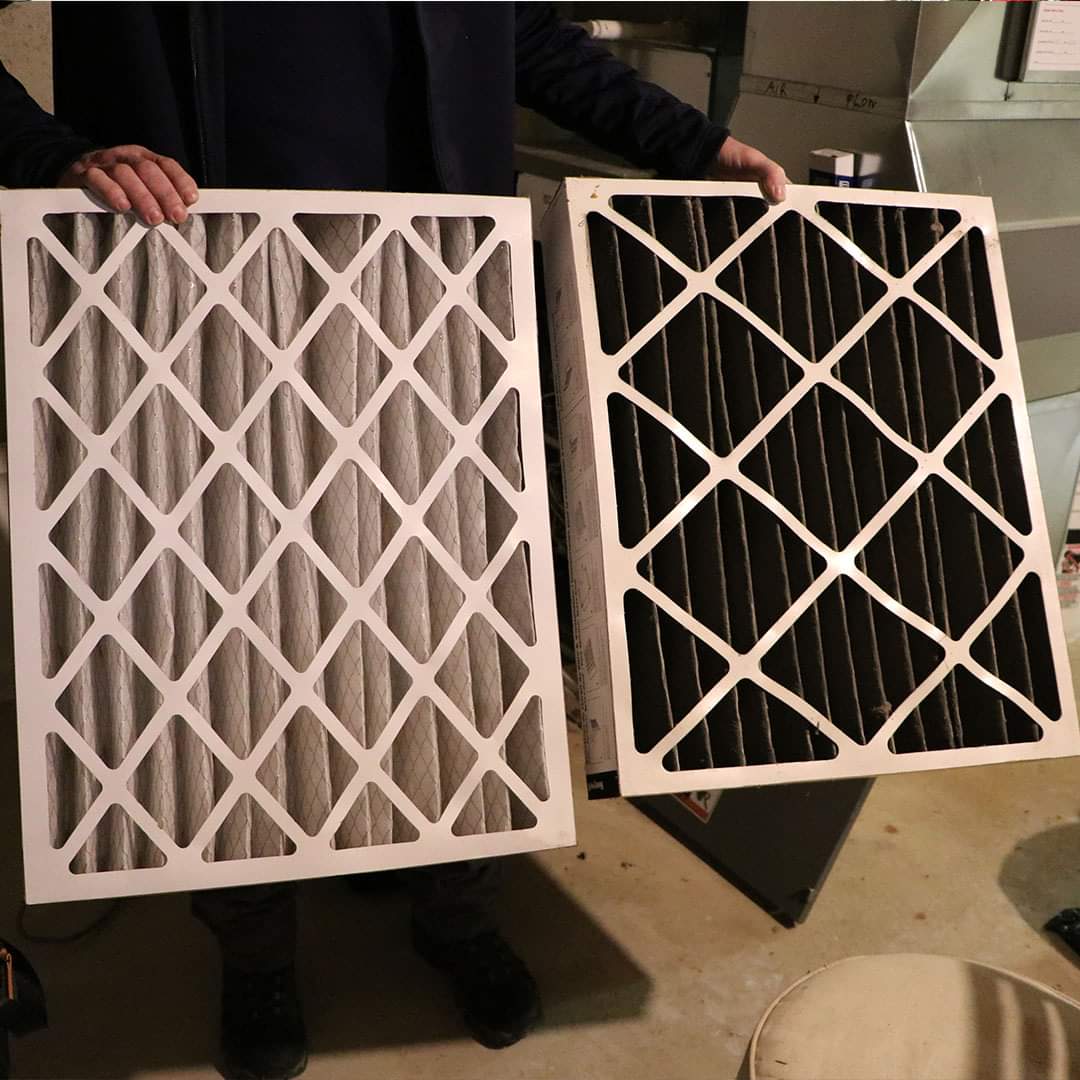
How does an air filter full of dust and debris lead to refrigerant leaking out of a copper tube? It might seem like they’re unrelated, however there’s a chain of events that starts with dirty air filters and ends with a leaking coil.
For your evaporator and condenser coils to do their job of temperature moderation, they need a clean and clear surface to absorb or dissipate heat energy.
When your indoor or outdoor air filter is full, there is nothing keeping dust, debris, or pollen from accumulating on their surface and preventing them from doing their job.
If left long enough, a layer of dirt will form on the surfaces of the coils and severely damage the performance and efficiency of the coils and subsequently the whole AC system.
This initial drop in performance and efficiency is not a good sign, but if you can catch it early you should still be in relatively good shape. A little cleaning of the coils’ surface and changing your air filters will get your system back up and running at full performance.
What you want to avoid is excessive accumulation of dust and debris on the surface of your coils for a prolonged period of time.
If left unchecked, dirty coils will lead to bigger problems than just a drop in performance and efficiency. In the outdoor condenser coil, overheating will occur when this layer prevents heat from dissipating. In the indoor evaporator coil, freezing and ice formation will occur when this layer prevents heat from being absorbed.
Both of these will lead to a breach in the coil and a subsequent leak, again if left unchecked for long enough.
Corrosion Will Cause a Breach in the Coil
Over time, moisture and chemicals from household cleaners, paints, and other volatile organic compounds (VOCs) can build up on the coils and lead to corrosion if left unchecked. This corrosion eats away at the metal, creating small holes through which refrigerant can leak.
Keeping an eye on your indoor air quality can prevent a leak caused by lingering chemicals, usually from household cleaners. Indoor air quality products like air scrubbers and air purifiers will help to prevent coil corrosion from chemicals and other VOCs.
Physical Damage Can Compromise the Coils’ Integrity
Common causes of physical damage to the coils that can cause a leak include objects hitting the outdoor unit, mishandling the equipment, and careless handling of tools while performing maintenance.
The coils in your AC unit are relatively delicate and should be handled with care. Something as innocent as bumping into the unit could cause a dent that may lead to a breach which would compromise the integrity of the coils.
Improper Installation Will Rear its Ugly Head
Improper installation can lead to a host of issues within your AC system. When we’re talking about evaporator coils specifically, ensuring that they’re installed level is among the most important considerations to make.
If not installed level, your evaporator coil will be likely to accumulate moisture at one spot in the unit. This type of build-up commonly causes a corrosion-based leak.
Wear and Tear Happens
Just like any other component of your home’s HVAC system, coils are subject to wear and tear. Over years of use, the constant cycle of heating and cooling can weaken the coils, making them more prone to developing leaks.
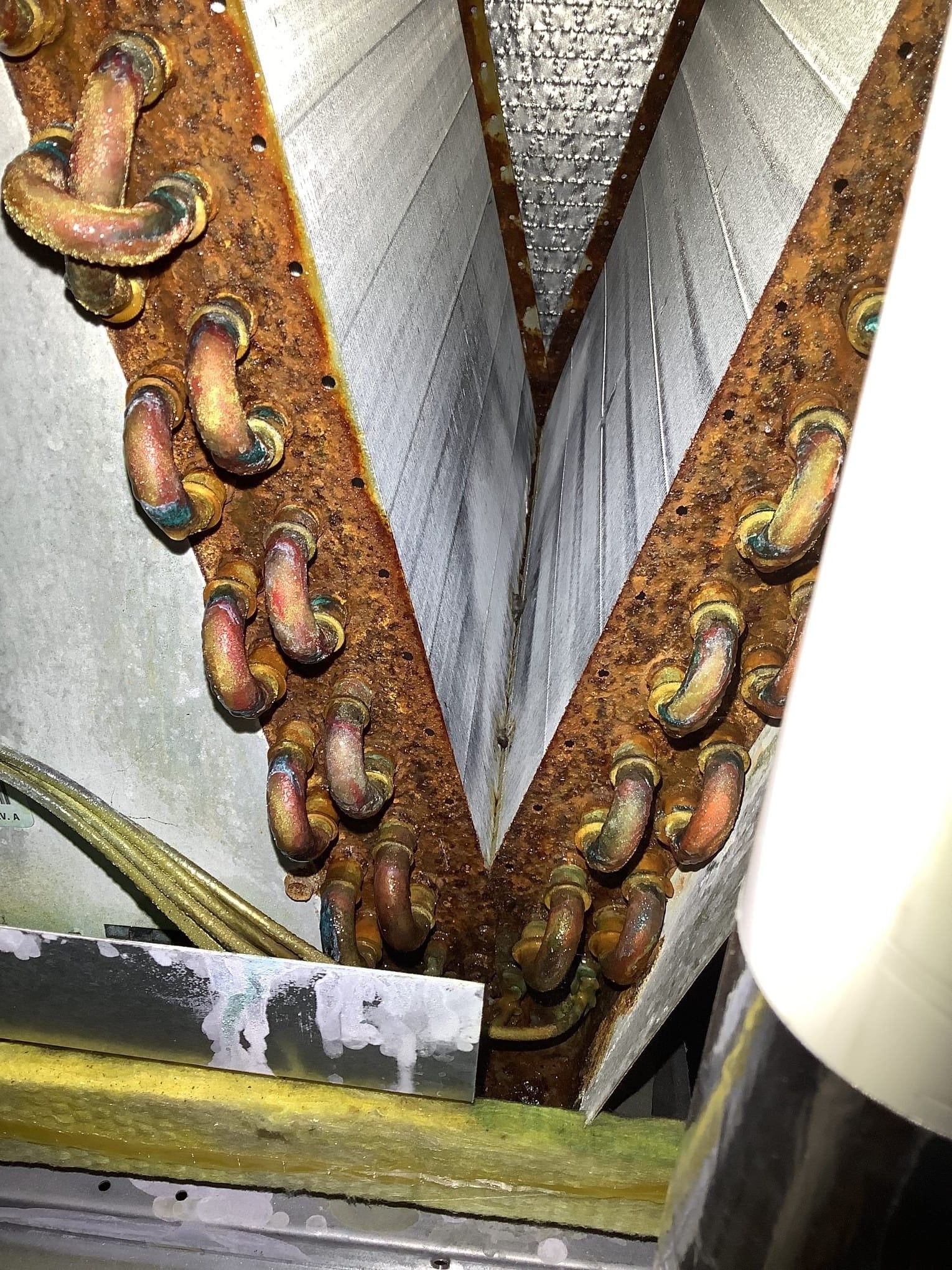
Signs and Symptoms that Your Coil is Leaking
If it’s been a few years since your last maintenance appointment, there are some telltale signs of a leaking coil that you’ll want to stay mindful of.
Reduced Cooling Efficiency
A noticeable drop in energy efficiency could be caused by a leaking coil. If you have a smart thermostat and receive data about the efficiency of your system, then you should be able to catch this relatively quickly.
While it’s more of a long-term symptom, another major red flag tied to a drop in energy efficiency is a spike in your energy bills. If you see an uptick in your bills then having a professional out to check on your coils is a wise move.
Unusual Noises
Unusual sounds coming from your AC unit, such as hissing or bubbling, can also indicate a refrigerant leak. These noises are caused by the refrigerant escaping through holes or cracks in the coils. If you hear such sounds, it’s a clear sign that there’s a breach in the system that needs immediate attention.
Frozen Coils
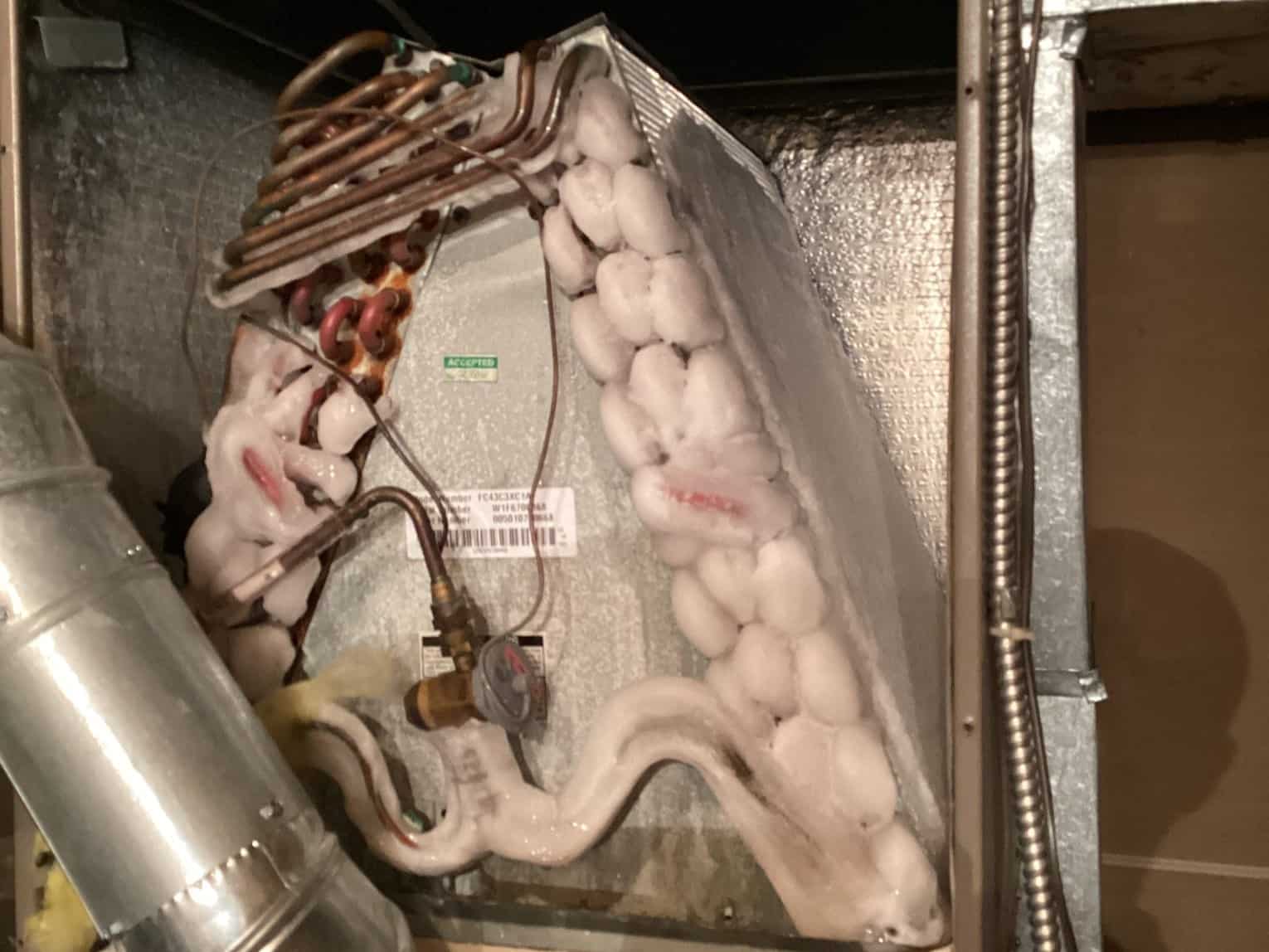
When refrigerant levels drop due to a leak, the evaporator coil can get too cold and cause condensation on it to freeze. This can lead to ice buildup on the coils, further reducing the system’s efficiency and potentially causing more damage. If you notice ice forming on your AC unit, it’s a sign that something is wrong.
Diagnosing a Leaking Coil
DIY Checks are a Good Start
While professional inspections are crucial, there are also some steps you can take at home to check for signs of leaking coils.
Check for the symptoms: a layer of dirt on the surface of the coils, ice build-up, overheating, and unusual hissing or bubbling sounds. Additionally, stay mindful of the health of your coils as you monitor your home’s cooling performance and energy bills. If you suspect a leak, it’s essential to address it promptly to prevent a larger issue from occurring.
Professional Inspection
To accurately diagnose and solve leaking coils, it’s best to call in a professional HVAC technician. During a routine maintenance visit, the technician can check the refrigerant levels, inspect the coils for signs of wear or damage, and use specialized tools to detect leaks. Regular inspections can help catch issues early before they lead to more significant problems.
Should You Repair or Replace a Leaking Coil?
Temporary Fixes
In some cases, adding more refrigerant to your AC system can work as a temporary fix. This can sometimes get a system through one summer, however, it will require the same type of remedy the next season.
This isn’t a long-term solution and is best used as a stop-gap measure until a more permanent solution, like replacement, can be made. Repeatedly adding more refrigerant will likely lead to more problems and shorten the lifespan of the system.
Professional Repairs
For a lasting solution, professional repairs are necessary. Depending on the severity and location of the leak, your HVAC technician may recommend different repair methods.
These can range from patching small holes to replacing entire sections of the coil. In some cases, it may be more cost-effective to replace the entire coil or even the entire unit, especially if it’s older and has other potential issues.
How to Prevent a Leaking Coil from Happening in the First Place
With so many potential causes of a leaking coil, taking measures to prevent them may seem like a losing battle. However, preventing leaks is always better than repairing them.
Regular maintenance, such as cleaning the coils and ensuring the outdoor unit is free from debris, can help extend the life of your coils.
Using high-quality air filters and replacing them regularly also reduces the amount of dust and chemicals that can contribute to corrosion.
An HVAC professional will be able to visually inspect your indoor and outdoor units for leaks and use specialized instruments like a leak detector to ensure your system is healthy.
Getting out ahead of any potential issue will make sure that you don’t run into larger issues down the road, like pressure losses or oil losses that will damage your system even further.
Tune-ups will set you up to get the most out of your coils and AC system at large.
What Does a Leaking Coil Mean for Me?
Leaking coils in AC units can be a major headache, but understanding how things like dirty filters, infrequent maintenance and improper installation can cause the problem, you’re better prepared to keep it from happening in the first place.
Regular maintenance and prompt attention to any signs of trouble, like decreased efficiency, can keep your air conditioner running smoothly, ensuring your home stays comfortable all year round.
If you’re experiencing issues with your AC unit or suspect leaking coils, don’t wait for the problem to worsen. Schedule a maintenance appointment with a qualified HVAC professional today to prevent costly repairs tomorrow.
Contact Mattioni’s professional HVAC team for a thorough inspection by calling (610) 400-8510 or by scheduling an appointment online.
Don’t let leaking coils disrupt your peace of mind; stay proactive with your HVAC care.

